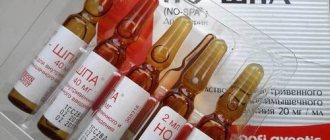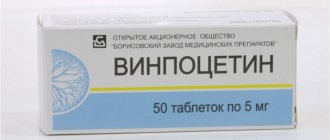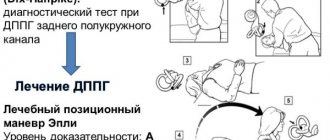Dizziness is a term used to describe the sensation of the body spinning and becoming unstable. Dizziness is one of the most common reasons why adults seek medical attention, as is chest pain or fatigue.
Although frequent dizziness or constant dizziness can significantly disrupt the patient’s normal life, nevertheless, this symptom is rarely a sign of a serious life-threatening illness for the patient. Treatment for dizziness is directly related to the cause and is usually quite effective.
Symptoms
Dizziness can usually be described as:
- Sensation of a feeling of movement or rotation
- Lightheadedness or feeling of fainting
- Loss of balance or instability
- Other sensations such as floating or heaviness in the head
A number of medical conditions can cause the feeling of dizziness. In some diseases, there is a disruption in the transmission of nerve impulses from one or more sensory systems to the brain, which leads to incorrect analysis of the information received. These disorders may affect the following sensory systems:
- Eyes that help determine the location of the body in space and its movement
- Sensory nerves (proprioception), which send messages to the brain about body movements and positions in space
- The inner ear, which contains sensors that help sense gravity and reciprocating motion
Some types of dizziness require immediate medical attention.
These are the following conditions accompanied by dizziness:
- Traumatic brain injury
- Sharp, severe headache
- Neck stiffness
- Blurred vision
- Severe acute hearing loss
- Speech disorders
- Weakness in a leg or arm
- Impaired consciousness
- Gait disturbance or falling
- Chest pain or heart rhythm disturbances.
Rating of the best drugs for dizziness
| Nomination | place | Name of product | price |
| The best drugs for dizziness caused by damage to the vestibular apparatus | 1 | Dramamine | 160 ₽ |
| 2 | Betaserk | 1 198 ₽ | |
| The best drugs for dizziness caused by circulatory disorders | 1 | Vinpocetine | 84 ₽ |
| 2 | Tanakan | 1 596 ₽ | |
| 3 | Cinnarizine | 41 ₽ | |
| The best drugs for stress-related dizziness | 1 | Afobazole | 405 ₽ |
| 2 | Anvifen | 384 ₽ | |
| 3 | Deprim forte | 231 ₽ | |
| The best drugs for dizziness with neck muscle spasms | 1 | Milgamma compositum | 722 ₽ |
| 2 | Katadolon | 1 317 ₽ |
Causes
Inner ear and body balance
The type of dizziness—such as a feeling of dizziness, a feeling of lightheadedness, or a feeling as if the body is out of balance—often provides clues as to the possible causes of this sensation. Specific triggers, such as certain activities or positions, may provide clues to the underlying cause of dizziness. The duration of any episode of dizziness and any additional symptoms that a person experiences can also help determine the actual cause.
Vertigo
Vertigo most often occurs as a result of an episode or temporary change in the activity of the vestibular structures of the inner ear (vestibular apparatus) or due to a disruption in the interaction of structures in the brain responsible for balance. These sensory analyzers sense movement and changes in head position. Rising from a position, sitting, or moving around the room may make dizziness worse. Sometimes the dizziness can be severe, leading to nausea, vomiting and problems with body balance. But vertigo usually does not last long. After 2-3 weeks, the body usually adapts to whatever makes a person dizzy.
Causes of dizziness may include:
- Benign paroxysmal positional vertigo (BPPV). BPPV causes intense, brief episodes of dizziness immediately after a change in head position, often when a person turns over in bed or sits at a desk in the morning. BPPV is the most common cause of dizziness.
- Inflammation of the inner ear. Signs and symptoms of inflammation of the inner ear (acute vestibular neuritis) include the sudden onset of intense, persistent dizziness that lasts for several days, along with symptoms such as nausea, vomiting and balance problems. These symptoms may be so severe that the patient must remain in bed. When these symptoms are combined with sudden hearing loss, the condition is called labyrinthitis. Fortunately, vestibular neuritis usually subsides quickly and recovers on its own. But earlier drug treatment and vestibular rehabilitation therapy can help speed up the recovery process.
- Meniere's disease. This disease is associated with excess fluid accumulation in the inner ear. This condition is characterized by sudden episodes of dizziness, lasting up to several hours, associated with episodes of hearing loss, ringing in the ears, and a feeling of fullness in the affected ear.
- Vestibular migraine. Migraine is more than just a headache. Just as some people with migraines experience a visual “aura,” other patients may have episodes of dizziness due to migraines even when they do not experience severe headaches. These episodes of dizziness can last from hours to days and may also be accompanied by headaches and sensitivity to light and noise.
- Acoustic neuroma. This disease is a benign tumor (schwannoma) of the auditory nerve, which connects the inner ear to the brain. Symptoms of an acoustic neuroma usually include progressive hearing loss and tinnitus, on the one hand, which is accompanied by dizziness or imbalance.
- Other reasons. Rarely, dizziness may be a symptom of a more serious neurological condition such as a stroke, brain hemorrhage or multiple sclerosis. In such cases, other neurological symptoms are present, such as double vision, speech disturbances, changes in facial expression or numbness, loss of coordination in the limbs, or severe problems with body balance.
Feeling of "lightheadedness"
Dizziness can lead to a feeling of weakness and “lightheadedness,” without loss of consciousness. The feeling of lightheadedness is sometimes accompanied by nausea, paleness and clammy skin. Causes of this type of dizziness include:
- Decreased blood pressure (orthostatic hypotension). A sudden drop in systolic blood pressure can lead to dizziness or a feeling of lightheadedness. This can happen after a sudden change in body position, such as getting up from a chair.
- Insufficient blood output from the heart. Certain conditions, such as diseases of the heart muscle (cardiomyopathies), abnormal heart rhythms (arrhythmias), or a significant decrease in the volume of circulating blood, can cause inadequate blood flow from the heart.
- Balance imbalance
Impaired balance manifests itself as a feeling of instability when a person walks. Reasons may include:
- Problems in the inner ear (vestibular). Pathological processes in the inner ear can cause a person to feel unsteadiness when walking, especially in the dark.
- Sensory impairments. Visual impairment and peripheral neuropathy (in the lower extremities) are common in older adults and can lead to problems maintaining body balance.
- Joint and muscle problems. Muscle weakness and osteoarthritis can contribute to poor balance, especially if there are problems in large weight-bearing joints.
- Neurological conditions. Various neurological diseases can lead to progressive imbalance, such as Parkinson's disease and cerebellar ataxia.
- Medicines. Balance problems can be a side effect of certain medications, such as anticonvulsants, sedatives, and tranquilizers.
- Other types of dizziness
Other nonspecific sensations of “dizziness” are those sensations that the patient finds it difficult to describe and perceives as rotation or floating. Some causes of such dizziness include:
- Medicines. Antihypertensives may cause weakness if they significantly lower blood pressure. Many other medications can cause a non-specific feeling of dizziness, which disappears when the drug is stopped.
- Diseases of the inner ear. Some inner ear diseases can lead to a constant feeling of dizziness.
- Neurotic disorders. Some neurotic disorders, such as panic attacks and fear of leaving the house or being in open spaces (agarophobia), can also trigger dizziness.
- Low hemoglobin levels (anemia). Along with dizziness with anemia, as a rule, other symptoms are present, such as fatigue, weakness, and pale skin.
- Low blood sugar (hypoglycemia). As a rule, hypoglycemia occurs in diabetic patients with an overdose of insulin. Dizziness due to hypoglycemia may be accompanied by symptoms such as sweating and confusion.
- Ear infections. Ear infections can cause dizziness in some cases. This type of dizziness disappears once the infection is eliminated.
- Overheating and dehydration. If a person is active in hot weather, or if they do not drink enough fluids, the person may feel dizzy from overheating (hyperthermia) or from dehydration. Resting in a cool place and drinking water usually relieves the feeling of dizziness.
- Chronic subjective dizziness. It is a specific clinical syndrome characterized by persistent nonspecific dizziness that has no obvious medical cause. Chronic subjective dizziness is associated with increased sensitivity to one's motor functions. This type of dizziness is exacerbated by exposure to complex visual environments (such as a grocery store), visual movement (such as watching a video), visual imagery, and precise visual tasks.
Lists of effective and safe drugs for older people
Medicine for dizziness for older people (the list of medications indicated for use is compiled by the attending physician) is selected individually depending on what disease of the central nervous system or blood vessels was diagnosed in the patient.
In this case the following can be used:
- nootropic drugs;
- muscle relaxants;
- anti-inflammatory drugs;
- multivitamin complexes.
Nootropics
The main purpose of nootropic drugs is to improve cerebral circulation and central nervous system functions. The table below provides a list of the most effective and safe medications in this category.
| Name | Characteristics of the drug |
| Vinpocetine | Vinpocetine is a drug that improves metabolic processes occurring in brain tissue. The active component of this drug is the chemical vinpocetine at a dosage of 5 mg per tablet. This medication is indicated for older people who suffer from dizziness caused by vascular diseases or cerebrovascular accidents. Therapy with this drug is carried out over a continuous course with a minimum duration of at least 2 months. Vinpocetine should be taken 1-2 tablets 3 times a day. Within 1 year, you can take 2-3 treatment courses with this medication. It all depends on the type of disease and the severity of dizziness attacks. The average cost of this drug is 40 rubles. for 50 tablets |
| Glycine | Glycine is an effective and absolutely safe nootropic drug that improves blood supply to the brain and has a beneficial effect on the functions of the central nervous system. The active ingredient of this drug is microencapsulated glycine in a dosage of 100 mg per tablet. This medicine is taken 1 tablet 2 to 3 times a day with a therapeutic course duration of 2-4 weeks. The medication is taken by dissolving the tablet inside the mouth. Elderly patients with dizziness that occurred after an ischemic stroke of the brain are advised to take 1000 mg of Glycine in the first 6 hours. The tablets are dissolved at intervals of 25-30 minutes. The average cost of this medication ranges from 29 to 41 rubles. per pack of 50 tablets. |
| Piracetam | Piracetam is a nootropic drug that comes in the form of red gelatin capsules. The active substance of this medication is the chemical compound piracetam at a dosage of 400 mg. This drug is used to treat elderly patients with signs of dizziness due to vascular diseases of the brain, central nervous system pathologies, and Alzheimer's disease. At the initial stage of therapy, Piracetam is prescribed in a dosage of 2 tablets 3 times a day before meals. As the attacks of dizziness disappear, the dose of the medication is reduced to 1 tablet, which should also be taken 3 times a day. The duration of the treatment course ranges from 2 weeks to 6 months. depending on the severity of the clinical case. The average cost of this drug is 65 rubles. for 60 tablets. |
A distinctive feature of nootropic drugs is that they normalize blood supply to the brain, stabilize the functions of the central nervous system, eliminate attacks of dizziness, but at the same time they have a minimum number of side effects.
Anti-inflammatory drugs for vascular compression
Elderly patients who suffer from pathological vascular conditions are prescribed non-steroidal anti-inflammatory drugs. Medicines in this category have an antiplatelet effect, eliminate signs of the inflammatory process, and improve general blood circulation in the body.
| Drug name | Characteristics of the drug |
| Aspirin Cardio | Aspirin Cardio is a drug in tablet form, which is produced on the basis of acetylsalicylic acid. The dosage of the main component is 100 mg per tablet. This medication normalizes general blood circulation, prevents the occurrence of dizziness, which is caused by thrombosis, diseases of the heart and blood vessels. Aspirin Cardio prevents the development of cerebral stroke. The dosage regimen for this drug involves taking 1 tablet once a day for 30 minutes. before meals, with plenty of liquid. The duration of treatment is determined by the doctor. The average cost of the drug Aspirin Cardio is 73-75 rubles. for 20 tablets. |
| Lornoxicam | Lornoxicam is an effective and safe non-steroidal anti-inflammatory drug with pronounced antiplatelet properties. The active component of this drug is the substance lornoxicam at a dosage of 8 mg in 1 bottle. This medication is created for intravenous and intramuscular administration. The use of Lornoxicam is indicated in those clinical situations where the appearance of attacks of dizziness is associated with compression of the walls of the great vessels. For example, in the presence of inflammatory processes in the cervical spine, where most of the large arteries supplying brain tissue pass. The dosage regimen for the drug Lornoxicam is intramuscular or intravenous administration of 8 to 16 mg of this drug. The duration of therapy is determined individually. The average cost of this medication is 532 rubles. |
Before prescribing anti-inflammatory drugs, it is imperative to establish the causative factors, the impact of which provoked swelling of the soft tissues and compression of the walls of blood vessels. The maximum therapeutic effect to eliminate dizziness is achieved with the combined use of NSAIDs and antiplatelet drugs.
Vitamin medicines
Medicine for dizziness for older people (the list of drug therapy used during treatment is compiled by a neurologist) is used to eliminate pathological symptoms, as well as combat the underlying disease that provokes it.
In medical practice, there are periodically cases where attacks of dizziness are associated with an acute deficiency of nutrients necessary for the stable functioning of the central nervous system. The table below lists vitamin and mineral complexes that normalize the functions of the cerebral cortex.
| Drug name | Characteristics of the drug |
| Medivitan | Medivitan is an effective and safe vitamin product with a combined composition. The active components of this drug are the following substances:
Medivitan is administered into the patient's body in the form of an injection solution by installing intravenous drips or performing intramuscular injections. The therapeutic dose of this drug is 5 ml 2 times a week. The duration of treatment is 4 weeks. In total, the patient should receive 8 injections of Medivitan. The average cost of this medication is 975 rubles.
|
| Folic acid | Folic acid is a medicine prescribed to an elderly patient with signs of vitamin B9 deficiency. A lack of this substance can lead to functional disorders of the central nervous system and dizziness. This medication is available in the form of tablets, which contain 1 mg of the active substance in the form of folic acid. The dosage regimen for this drug involves taking from 1 to 5 tablets per day. The total dosage depends on the severity of the vitamin B9 deficiency and the general health of the patient. The average duration of the therapeutic course is from 25 to 30 days, and the cost of this drug ranges from 23 to 46 rubles. for 50 tablets. |
| Multi-Tabs Classic | This is a balanced multivitamin complex, which contains all the vitamins and minerals necessary for stable functioning of the central nervous system, as well as preventing attacks of dizziness. This drug is taken 1 tablet 1 time per day immediately after meals or directly during meals. The price of this medication ranges from 346 to 455 rubles. |
Taking vitamin preparations can be carried out in combination with drug therapy with other drugs, the action of which is aimed at improving the functions of the brain and vestibular apparatus.
Muscle relaxants to reduce muscle tone
Medicine for dizziness for older people (the list of drugs that normalize cerebral circulation includes muscle relaxants) is selected taking into account the general condition of the patient. The table below lists medications that weaken the tone of muscle tissue, eliminate the effect of spasm, and also have a positive effect on the functions of the central nervous system.
| Name of the medication | Characteristics of the drug |
| Baklosan | Baklosan is a centrally acting muscle relaxant used for dizziness caused by brain tumors, cerebrovascular pathologies, and multiple sclerosis. The active component of this drug is the substance baclofen with a mass fraction of 10 and 25 mg per tablet, depending on the individual needs of each patient. At the initial stage of treatment, Baklosan is taken 5 mg 3 times a day. Over the next 3 days, the dosage of this medication is increased by 5 mg until a stable therapeutic effect is achieved. In this case, the elderly patient must be under constant supervision of medical personnel. The dosage of Baklosan is selected in such a way that the effect of reducing the tone of the walls of blood vessels is achieved, but the functions of the muscular system of the musculoskeletal system are not impaired. The average cost of this medication ranges from 247 to 260 rubles. for 50 tablets.
|
| Calmirex | It is a muscle relaxant that affects the centers of the brain responsible for muscle tone. The active component of this drug is the substance tolperisone hydrochloride with a concentration of 50 mg in 1 tablet. Calmirex is prescribed for use in elderly patients who suffer from attacks of dizziness resulting from pathologies of the cerebral vessels and the consequences of a previous stroke. This medication is prescribed in a dose of 1 tablet 3 times a day after meals. Calmirex should be taken with plenty of water. It is strictly forbidden to break the tablet or damage its protective shell. During treatment, the dosage regimen for this drug can be changed to 3 tablets 3 times a day. The duration of therapy is determined by the doctor individually. Calmirex is not recommended for use by elderly patients who suffer from severe kidney disease. The average cost of this medication ranges from 210 to 214 rubles. for 30 tablets. |
Taking muscle relaxants should only be done under the supervision of the attending physician or junior medical personnel. The above drugs are considered safe, but if the dosage is incorrectly selected, side effects may develop.
Antibacterial drugs
The use of antibacterial drugs in the fight against attacks of dizziness is advisable if the cause of their occurrence is meningococcal infections, which provoked inflammation of the cerebral cortex. The table below shows medications that can stabilize the patient's condition.
| Name of the medication | Characteristics of the drug |
| Ampicillin | Ampicillin is an antibacterial agent that belongs to the pharmacological group of semisynthetic penicillins. 1 tablet of this drug contains 1 g of active substance in the form of ampicillin sodium salt. A single dose of this medication is from 250 to 500 mg, and a daily dose is from 1 to 3 g. This amount of the drug is divided into 4 doses. The average cost of Ampicillin is 26 rubles. for 20 tablets. |
| Ceftriaxone | Ceftriaxone is a cephalosporin antibiotic with a dosage of 1 g in 1 vial. The medication is available in the form of a white powder, on the basis of which an injection solution is prepared for intravenous and intramuscular administration. The dosage of this drug is 1-2 g once a day, and its price is 22 rubles. for 1 bottle. |
The prescription of antibacterial agents is carried out by an infectious disease doctor after confirming the fact of inflammation of the meninges caused by meningococcal infection. As pathogenic microorganisms are destroyed, the patient’s well-being normalizes, and signs of dizziness go away.
Risk factors
Factors that may increase your risk of developing dizziness include:
- Age. People over 65 years of age are more likely to have medical illnesses that cause dizziness. They are also more likely to take medications that can cause dizziness.
- Taking certain medications. Some medications, such as blood pressure medications, anticonvulsants, sedatives, and tranquilizers, may cause dizziness.
- Previous episodes of dizziness. If a person has experienced dizziness before, then the likelihood of repeated episodes of dizziness is higher.
Intense dizziness
Vertigo can vary in intensity. In addition to changes in health status, sudden intense dizziness can be caused by several external factors. In this case, therapy is not required - you just need to change your habits and lifestyle.
Factors that provoke dizziness in old age:
- Strong physical activity. Often older people are interested in gardening and growing vegetables. Most often this happens during hot periods, which causes weakness, fatigue and, as a result, intense dizziness.
- Insufficient rest.
- Sudden rise from a chair, bed, etc.
- Traveling in vehicles at high speed (sickness).
Also, one of the causes of vertigo in women is menopause. The reason lies in certain hormonal changes that occur at this time.
Diagnostics
Diagnosis begins, first of all, with a consultation with a doctor. The doctor may be primarily interested in answers to the following questions:
- Is the dizziness continuous or sporadic?
- If the dizziness occurs in episodes, how long did the episode last?
- How often do episodes of dizziness occur?
- What triggers episodes of dizziness?
- Does the sensation of spinning, moving around, or spinning your body itself make you dizzy?
- Is dizziness accompanied by a feeling of weakness?
- Does dizziness cause imbalance?
- Is dizziness accompanied by ringing, a feeling of fullness in the ears, or hearing loss?
- Are there any visual impairments?
- Does dizziness get worse when you change your head position?
- What medications, vitamins, or nutritional supplements is the patient taking?
The doctor thus narrows down the range of conditions that may be causing dizziness. A neurological examination helps identify the presence of neurological symptoms. After a physical examination, your doctor may prescribe additional tests.
- Eyeball movement test. The doctor may observe the movement of the patient's eyeballs while tracking a moving object. In addition, a test may be performed where cold or warm water is poured into the ear and eye movements are observed.
- Posturography. This method allows you to determine which parts of the balancing system are out of order.
- Vestibular testing also allows you to determine the degree of stability of the vestibular apparatus.
In some cases, magnetic resonance imaging (MRI) may be needed. An MRI may be done to rule out acoustic neuroma or other problems in the brain that may be causing the dizziness.
Laboratory research methods are necessary in cases where there is suspicion of somatic diseases (for example, anemia).
The best drugs for stress-related dizziness
Usually this group of dizziness is called psychogenic, but this term does not mean that it is time for the victim to surrender to a psychiatrist (although in some cases requiring the prescription of antidepressants, a psychiatrist or neurologist cannot be avoided - these drugs are strictly prescription). Even the attack of dizziness itself can become a stress factor. Especially if it develops suddenly (as often happens with the benign postural paroxysmal vertigo mentioned in the first section of the rating). Often, psychogenic dizziness occurs against the background of panic attacks, “hot flashes” during menopause and other conditions accompanied by a reaction from the autonomic nervous system.
Stress dizziness is usually accompanied by a feeling of weakness, lightheadedness, instability of “floaters” before the eyes and can result in loss of consciousness (fainting).
In such conditions, sedatives of various natures and antidepressants come to the fore.
Afobazole
Rating: 4.7
Reduces anxiety, irritability, tearfulness, eliminates mood swings (emotional lability) and has antidepressant properties. In addition to dizziness, it reduces the feeling of dry mouth, sweating, and palpitations caused by stress.
The effect of the drug begins to appear on the 5th – 7th day of use, reaching a maximum by the end of 4 weeks. The course of treatment is up to 3 months, the effect persists for another 2 weeks after discontinuation.
Side effects include allergic reactions and headache.
Contraindicated during pregnancy, breastfeeding and children under 18 years of age.
Advantages
- antidepressant effect,
- over the counter.
Flaws
- No.
Anvifen
Rating: 4.3
Active ingredient: aminophenylbutyric acid.
Reduces restlessness, anxiety, fear, irritability, improves sleep. Has a nootropic effect: improves attention and memory.
For dizziness, it is recommended to take 250 mg 3 times a day.
The drug can also be used to prevent motion sickness in transport: for this you need to take 500 mg an hour before the trip.
Side effects may include headache and drowsiness at the beginning of treatment.
Pregnant and lactating women should take with caution, as safety studies have not been conducted in humans. No harmful effects on the fetus were detected during animal testing.
Possible analogues: Phenibut, Noofen.
Advantages
- relieves anxiety,
- has a nootropic effect.
Flaws
- available by prescription.
Deprim forte
Rating: 4.2
Natural antidepressant based on St. John's wort extract.
It has an anti-anxiety effect, reduces feelings of general malaise and fatigue.
Available in capsules of 425 mg of active substance. Take 1 capsule 1 – 2 times a day, according to how you feel. The effect appears within 10–14 days from the start of use, the course of treatment is 4–6 weeks.
When taking the drug in the summer, you need to remember that St. John's wort increases the skin's sensitivity to ultraviolet radiation and use sunscreen.
Contraindicated in children under 12 years of age and pregnant women.
Advantages
- natural drug.
Flaws
- increases photosensitivity.
Treatment
Treatment for dizziness depends on the cause and symptoms.
- BPPV. Treatment for BPPV involves a simple procedure in which a doctor or physical therapist performs a head repositioning maneuver. This procedure usually begins to work after one or two treatments.
- Diseases of the inner ear. Exercises to restore the vestibular system are used to treat acute vestibular neuronitis or labyrinthitis. To provide relief from nausea and dizziness, your doctor may prescribe medications such as meclizine (Antivert) and diazepam (Valium) or may recommend dimenhydrinate (Dramamine). In some cases, a short course of corticosteroids may be prescribed, which may improve vestibular function.
- Meniere's disease. Treatment of Meniere's disease involves reducing fluid in the body through the use of diuretics or dietary adjustments (reducing salt in food). Sometimes injections are given through the eardrum or surgery may be recommended.
- Vestibular migraine. To combat dizziness associated with vestibular migraine, it is necessary to identify and eliminate attack triggers by focusing on nutrition, stress, normal sleep and adequate physical activity. Some medications may help prevent vestibular migraine attacks or make them less severe, especially when there is nausea and vomiting. You can also perform special exercises that will help make the balance system less sensitive to movement (vestibular rehabilitation).
- Anxiety disorders. In such cases, both medications and psychotherapy may be recommended.
How is dizziness treated?
Examination of the patient by a specialist
Medicines are prescribed by a specialist after examination, diagnosis of the disease, and diagnosis.
The following symptomatic drugs are available:
- nootropic, accelerating cellular metabolism in the cerebral cortex, saturating cells with oxygen;
- neuroleptics, prescribed for diseases of the nervous system, relieving psychomotor agitation;
- antihistamines, eliminating such effects caused by drugs;
- antispasmodic, recommended for migraines, Meniere's disease to relieve spasms, improve blood circulation.
Lifestyle
- The patient should be aware that dizziness can lead to loss of balance, which can lead to a fall and serious injury.
- You must try not to move abruptly.
- You need to get up slowly.
- Carpets or electrical cords must be removed from the room. Anti-slip mats should be used in the bathroom.
- If the patient feels dizzy, then it is necessary to sit or lie down.
- Driving a car or operating heavy machinery should be avoided if the patient experiences frequent dizziness.
- It is necessary to use good lighting on the stairs and where the patient walks at night
- When walking, use a cane for stability if necessary.
- Avoid the use of caffeine, alcohol and tobacco. Excessive use of these substances may worsen dizziness.








